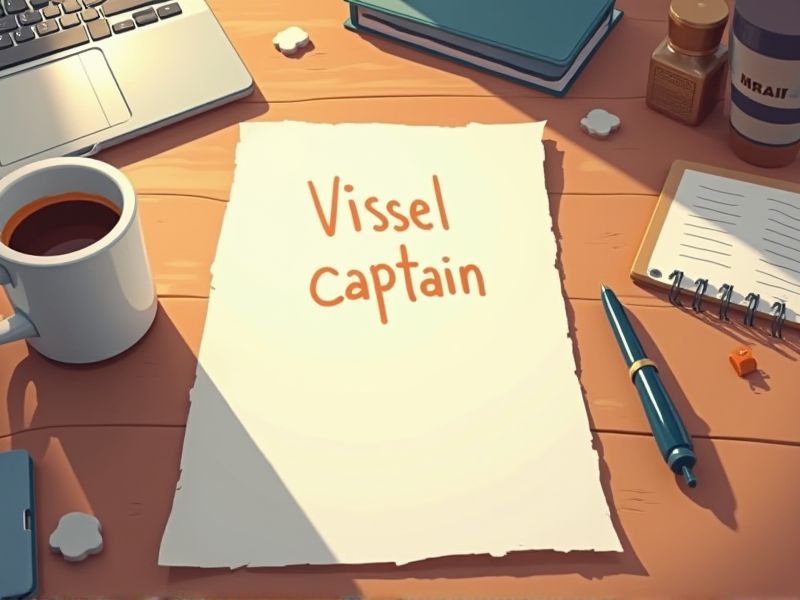
Vessel captains navigate complex maritime environments requiring advanced skills and sound decision-making abilities. Maritime safety regulations mandate specific certifications to ensure captains are well-equipped to handle emergencies and maintain vessel integrity. International and local authorities enforce these certifications, influencing captains' operational legitimacy and professional advancement. Essential certifications for a vessel captain include those such as STCW, RADAR, and GMDSS.
STCW Basic Safety Training
STCW Basic Safety Training ensures vessel captains possess the knowledge to handle emergencies at sea, minimizing risks to crew and passengers. It equips them with skills in fire prevention, firefighting, and survival techniques, enhancing operational safety. Adherence to STCW standards establishes a uniform safety protocol, essential for global maritime operations. Meeting these training requirements is a legal prerequisite, aligning captains with international safety regulations and compliance norms.
Advanced Firefighting Certification
Vessel captains often encounter situations involving fire hazards due to the presence of flammable materials on board, making Advanced Firefighting Certification crucial for managing such emergencies effectively. This certification equips them with the skills required to lead firefighting operations and coordinate the crew, ensuring safety and reducing potential damage. Regulatory bodies, like the International Maritime Organization, mandate this certification to maintain standardized safety practices across maritime industries. Expertise gained from this training minimizes the risk of casualties and environmental damage, aligning with global safety and environmental protection objectives.
Proficiency in Designated Security Duties (PDSD)
Proficiency in Designated Security Duties (PDSD) ensures vessel captains understand and effectively manage security protocols on board. Security threats in maritime environments have increased, making it essential for captains to be well-versed in counteracting potential risks. International regulations, such as the ISPS Code, mandate security training to ensure safety and compliance. A captain trained in PDSD is better equipped to safeguard against piracy and unauthorized access, contributing to the vessel's overall safety.
Global Maritime Distress and Safety System (GMDSS) Certification
Gaining GMDSS Certification ensures that a vessel captain can effectively operate radio equipment crucial for maritime distress and safety communication. This certification enhances the safety of the vessel and its crew by enabling immediate response to emergencies through internationally recognized communication protocols. Compliance with the International Maritime Organization's regulations is a legal necessity, making the certification vital for lawful maritime operations. Enhanced communication capabilities, certified by GMDSS, decrease the likelihood of miscommunication during critical situations, thereby preventing potential maritime accidents.
Bridge Resource Management Certification
Bridge Resource Management (BRM) certification is essential for a vessel captain as it enhances communication and teamwork on the bridge, reducing the risk of human errors. By focusing on situational awareness, it enables captains to make informed decisions, especially in complex situations or emergencies. The training addresses fatigue management and stress handling, which are critical factors in maritime safety. Data shows that effective BRM can lead to significant decreases in maritime accidents, showcasing its vital role in safe navigation.
Advanced Ship Handling and Maneuvering Training
Advanced ship handling and maneuvering training equips vessel captains with skills to navigate complex and congested waters, reducing the risk of maritime accidents. This training enhances captains' ability to respond effectively to unexpected environmental conditions, such as severe weather or shifting tides. Increased ship sizes and technological complexity require captains to continuously update their operational knowledge and technological fluency. Regulatory bodies mandate such training to ensure standardized safety and operational efficiency across maritime operations.
Maritime Law and Regulations Certification
Maritime Law and Regulations Certification equips vessel captains with the necessary knowledge to ensure compliance with international laws, which directly affects the safety and legality of maritime operations. Certification educates captains on environmental regulations critical to preventing pollution and conserving marine ecosystems. Understanding maritime laws helps captains navigate legal disputes and liabilities, reducing potential financial penalties for the vessel's owners and operators. By knowing the regulations, captains can effectively manage crew conduct and onboard procedures, enhancing overall operational efficiency and safety.
ECDIS Training Certificate
The ECDIS Training Certificate is essential for vessel captains because it ensures they are well-versed in using the Electronic Chart Display and Information System, which is critical for safe navigation. With the rise of digital navigation systems, traditional navigation skills can become outdated, and comprehensive ECDIS training bridges this knowledge gap, helping to prevent maritime accidents. Compliance with international regulations, such as those set by the IMO, mandates that vessel captains must possess an ECDIS certificate as part of the STCW requirements. The certificate enhances a captain's qualifications, increasing employability and aligning with modern maritime industry standards.
Human Element and Stress Management Certification
The Human Element and Stress Management Certification for vessel captains is essential because it directly impacts decision-making in high-pressure maritime environments. Unmanaged stress often leads to errors and accidents, compromising crew safety and vessel operations. Understanding human behavior and stress responses enhances a captain's ability to maintain composure, fostering a more resilient crew. Regulatory frameworks increasingly emphasize human factors, aligning certification with industry standards and improving operational efficiency.
Leadership and Management in Maritime Operations Certification
The Leadership and Management in Maritime Operations Certification enhances a vessel captain's ability to effectively navigate complex organizational dynamics and improve crew coordination. Research shows that well-trained captains reduce the likelihood of human error, a leading cause of maritime accidents. Certification ensures captains are equipped with current best practices in safety and emergency protocols, essential for minimizing risks at sea. Industry standards increasingly demand certified professionals, impacting career advancement opportunities for vessel captains.
Summary
When you ensure that a vessel captain obtains necessary certifications, the operation and management of the vessel can significantly improve. Certified captains typically exhibit enhanced navigation and safety skills, leading to reduced risks of maritime accidents. These qualifications also bolster compliance with international maritime laws, minimizing legal liabilities. Consequently, your vessel operations become more efficient, fostering trust with clients and stakeholders.
